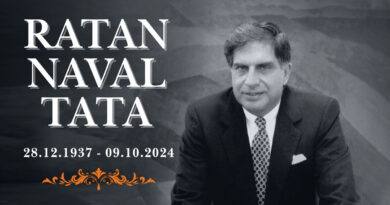Gandhi’s Principles: Why This Is A Better Blueprint For Today?
By Krishnakumae T N | Human Interests & Social Pursuits | The WFY Magazine, October 2025 Edition
Why Gandhi’s Principles Are the Blueprint for the 21st Century
Mahatma Gandhi, a figure often relegated to history books, actually holds the answers to some of the most frustrating problems we face today, from climate change to endless polarization. His philosophy is not just a relic of the past; it’s a manual for modern ethical living and global survival.
While he led a movement decades ago, his core principles of Satyagraha (truth force) and Ahimsa (non-violence) offer practical, effective tools for navigating our complex world. Let’s dive into why these ideas are more urgent than ever.
1. Satyagraha: The Antidote to Polarization and Conflict
The 21st century is defined by division. Whether it’s political echo chambers, social media warfare, or literal international conflicts, our default response is often to escalate and dehumanize the “other side.”
This is where Satyagraha shines. Often misunderstood as mere “passive resistance,” it is, in fact, an intensely active and moral struggle. Satyagraha says:
- Fight the injustice, not the person: It aims to convert the opponent through moral persuasion and love, compelling them to see the truth of the situation, rather than coercing them through fear or violence.
- It demands self-suffering: The willingness to endure hardship for your cause gives your argument immense moral authority.
In an age fueled by anonymous hate and instant outrage online, Satyagraha provides a necessary moral blueprint for modern movements. It prevents the cycle of revenge and gives activists and leaders a higher ground from which to push for genuine, lasting change in diplomacy and social justice.
2. Trusteeship and Swadeshi: Our Path to Climate Stability
The climate crisis is the direct result of a mindset centered on endless extraction and excessive consumption. Gandhi saw this danger a century ago.
His philosophy of Trusteeship is a powerful concept for our time. It suggests that any accumulated wealth or resources should not be held purely for personal gratification, but as a “trust” to be used for the welfare of society and the community. This directly challenges the excessive individualism and greed that fuels environmental destruction.
Furthermore, his call for Swadeshi, or economic self-sufficiency, prefigures today’s movements for local sustainability. By promoting locally-made goods and self-reliance, Swadeshi reduces our collective global carbon footprint, limits dependence on exploitative supply chains, and empowers local communities.
His profound quote remains the ultimate guide for environmental policy and personal lifestyle:
“There is enough for everybody’s need, but not for anybody’s greed.”
3. Satya: Restoring Truth in the Digital Age
The foundation of any healthy democracy or society is shared truth (Satya). Today, with the rise of deepfakes, “fake news,” and rampant digital misinformation, that foundation is crumbling.
For Gandhi, Truth (Satya) was the highest principle, demanding honesty not just in words, but also in thought and action. In the digital world, this translates to:
- Ethical Communication: Resisting the urge to spread unverified or hateful content.
- Critical Consumption: Exercising moral discipline by being critical consumers of information and seeking objective reality over convenient narratives.
The discipline of Satya is the essential internal firewall against the cynicism and manipulation that currently corrode public trust. It reminds us that integrity starts with the individual and that restoring trust in public life requires nothing less than a collective commitment to honesty.
Why We Still Need Gandhi?
The problems of the 21st century, conflict, climate, and corruption, are moral and ethical in nature, not just technological. Gandhi’s principles provide the moral restructuring necessary to overcome them. They are not merely ideals to be admired, but practical methods to be practiced if we hope to steer the world toward a future that is more peaceful, sustainable, and true.




